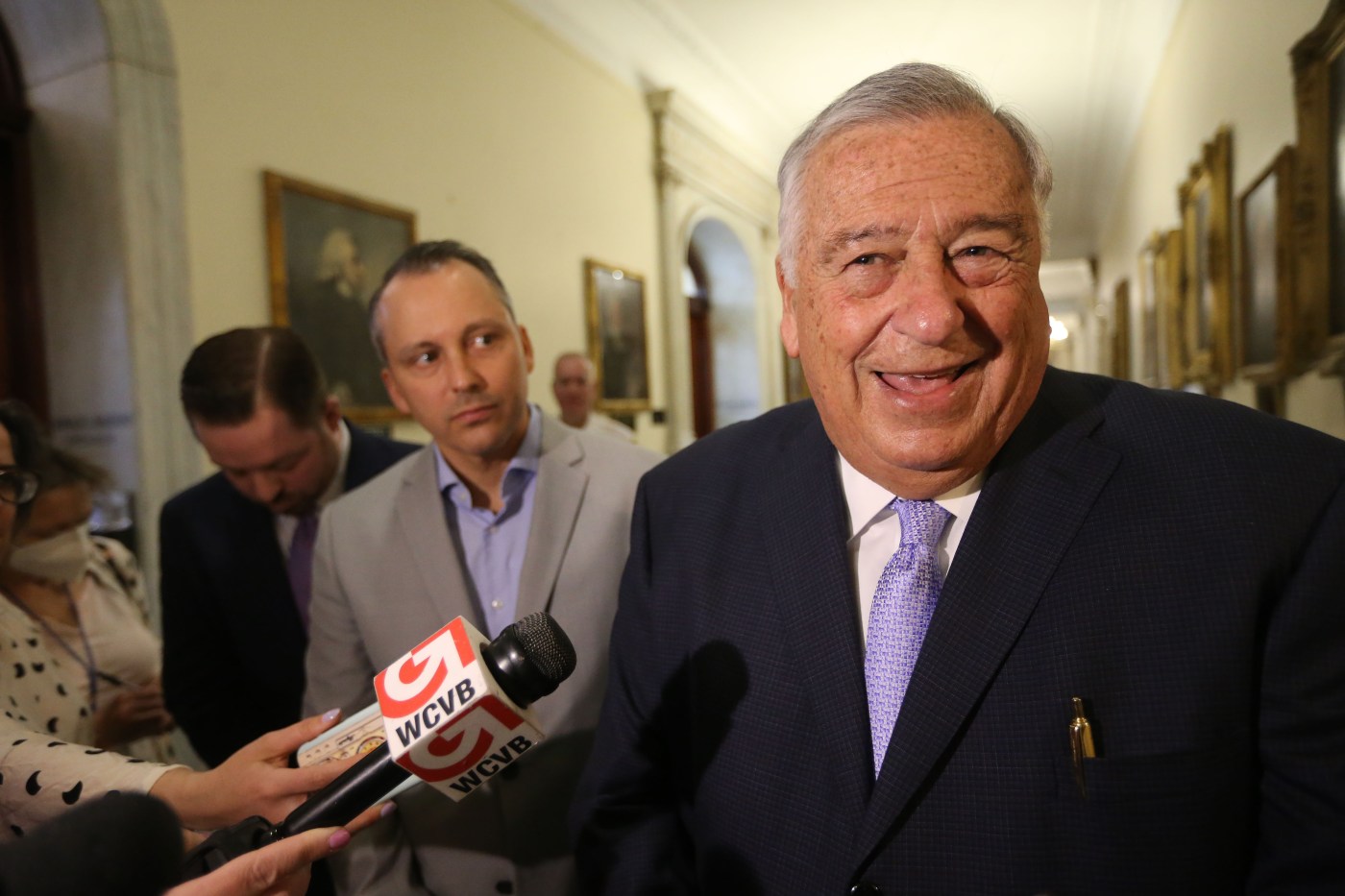
House Democrats considering changes to how state-run shelter program is managed
A pair of top House Democrats said they are considering changes to how officials “manage” state-run shelters housing homeless families, including migrants, as they also knocked Congress for leaving Massachusetts without federal support.
Any changes to the emergency assistance shelter program would come as the system is facing a $224 million budget gap this fiscal year, an expected $1 billion bill in the next, and after fervent calls from Republicans to put limits on who can access shelters paid for by taxpayers.
House Speaker Ron Mariano said Democrats held a private meeting Wednesday where they discussed changes to the program, which is administered under the decades-old right-to-shelter law that requires officials to provide temporary housing to families with children and pregnant women.
Mariano said “we’re talking about a lot of different options” when asked if he was considering putting in place residency requirements or time limits on people’s stay in shelter. There were 7,522 families in the shelter system as of Tuesday, according to state data.
“We’re looking at a billion dollar bill for next year in the midst of declining revenues, do you realize what that will do to us? And so we have to take a look at how we administer this program,” Mariano told reporters on Beacon Hill.
Massachusetts has seen seven straight months of revenues returning lower than expected, including below the $1 billion downgrade Gov. Maura Healey put in place earlier this year when she also cut $375 million from the fiscal year 2024 budget.
House budget writer Rep. Aaron Michlewitz said the House does not want to touch the right-to-shelter law and is “continuing forward” with the statute.
“How we manage the (emergency assistance) program going forward, I think is up for discussion. To be able to manage it and make it sufficient and sustainable long-term with no help coming from Washington is certainly going to have to create some, we’re gonna have to look at some potential changes,” Michlewitz said.
It was not immediately clear when House Democrats could release proposed changes to the emergency assistance shelter program. Michlewitz said he is “hopeful” the chamber could take action before it considers the full fiscal year 2025 budget in April.
“But I don’t want to put any timeline on it yet until we get there,” he said.
Fiscal year 2024 funding for the emergency assistance shelter program is expected to run out in the spring, though an exact date for when cash will dry up is unclear.
The Healey administration expects to spend $932 million this fiscal year on emergency shelters and associated services. State officials spent $395 million on the shelter system as of Feb. 22, $8 million on municipal supports, and $21 million on intake sites and improvements to a shelter in Cambridge, according to a Healey administration report.
Healey filed a supplemental budget last month that looks to tap $873 million in leftover surplus dollars from the pandemic to plug the budget gap this fiscal year and pay down costs in the next.
In fiscal year 2024, Healey wants to use $150 million for housing production and preservation, $215 million for shelters, and $10 million for “specialized immigration and refugee health and community supports to address the needs of families with complex immigration status issues,” the report said.
That would leave $499 million for fiscal year 2025 shelter costs, according to Healey’s proposal.
“Recognizing the fluidity of the situation and the significant need for shelter and services during this crisis, as well as the importance of supporting the local communities in which these families are sheltered, attending school, and participating in everyday life, the proposal will allow spending flexibility to address changing demands in FY24 and FY25,” the shelter system report.
Michlewitz said closing the FY24 budget gap with leftover pandemic-era dollars is one option “that we are certainly looking at” but House Democratic leadership is also eyeing “how this program is going to work long-term.”
A spokesperson for Senate President Karen Spilka will review the supplemental budget “in short order after passage in the House.”
“The Senate has been working closely alongside the Administration and the House to monitor the shelter system, and the Senate President has been clear that we need to help the families entering our state, but we need help from Congress,” the spokesperson said.
Lawmakers handed Healey $250 million last year to respond to an influx of migrants in Massachusetts and the struggling emergency shelter system, which the governor unilaterally capped at 7,500 families.
Michlewitz said Democrats approved the funding last fall when “there was a glimmer of hope of some type of federal relief, whether it be from a legislative standpoint, financial standpoint, or an executive action standpoint.”
But since then, a bipartisan immigration bill languished in Washington that would have shuttled aid to states like Massachusetts and granted President Joe Biden more executive authority over the border.
Mariano said he is not “expecting any help from Washington” because Congress is “in such disarray.”
“We are on our own on this and we realize that now,” the Quincy Democrat said.


